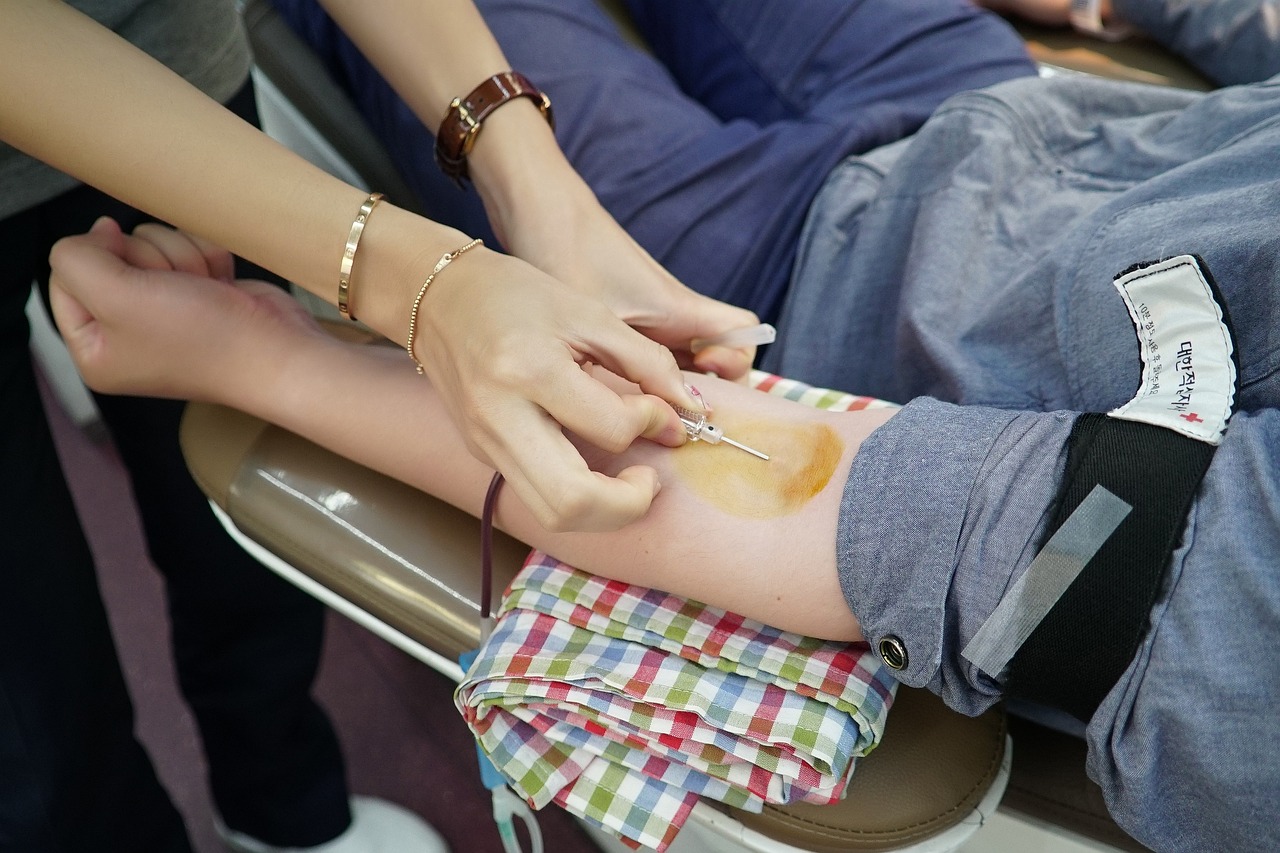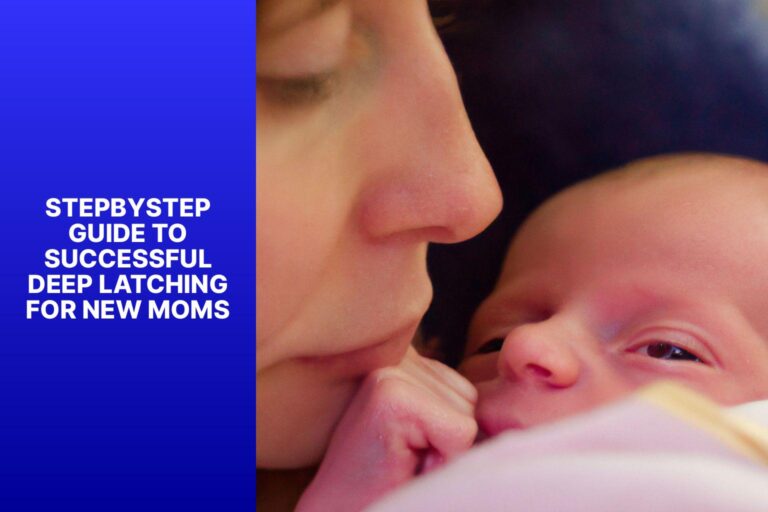Breastfeeding in Public vs. Pumping: Pros and Cons for Moms
Skip To The Following Sections
- Understanding Both Sides: Feeding Your Baby Outdoors or Expressing Milk
- The Advantages of Nursing Your Infant in the Open
- The Drawbacks of Nursing Your Infant in the Open
- Why Some Mothers Prefer Expressing Milk
- Challenges Faced when Expressing Milk
- Comparing the Two: Feeding Directly or Using a Pump
- Health Benefits: Direct Feeding vs Using Stored Milk
- Social Attitudes: Dealing with Stigma and Judgment
- Practical Aspects: Ease and Convenience
- Informed Choices: What Works Best for You and Your Baby
- Could you elucidate the primary divergences between giving my infant sustenance directly and expressing milk?
- What are the advantages of breastfeeding my little one in unrestricted spaces?
- Do any drawbacks accompany nursing my baby alfresco?
- Why do some mothers opt for expressing their own milk?
- Is there potential for encountering hurdles whilst expressing breastmilk?
- Any health variations noted when comparing direct feeding versus stored-milk use?
- How best can I navigate societal attitudes towards baby feeding?
- What would be deemed the most convenient way to feed my little one?
- How do I ensure an informed decision regarding what is optimal for both me and my infant?
Understanding Both Sides: Feeding Your Baby Outdoors or Expressing Milk
Navigating the labyrinth of infant nutrition, one doesn’t merely oscillate between outdoor nursing and milk expression. Each is a distinct constellation of benefits and drawbacks – the suitability fluctuating with the rhythm of maternal lifestyle, comfort, and infant needs. The open skies above, nurturing an intimate bond below; immediate nourishment delivery – these are potent boons bestowed by breastfeeding in nature’s lap.
However, flipping this coin reveals another narrative: expressing milk offers mommies an augmented degree of flexibility and command over their regimen. They can wield the pump at will; feed their little one irrespective of time or place – casting aside concerns about securing a cozy alfresco nook for nursing. This method isn’t without its own share of hurdles though – guaranteeing apt storage conditions, lugging around essential gear etcetera. Henceforth it all distills down to comprehending both ends of this spectrum and electing what meshes seamlessly into your life mosaic.\n
The Advantages of Nursing Your Infant in the Open
There’s an enchanting quality, a certain mystique, to cradling your baby in the vast expanses of nature. It allows you to impart the tranquilizing prowess of Mother Nature onto your tiny one while nurturing that unique bond between you two. And let’s not overlook how nature’s serene backdrop paves the way for a soothing atmosphere that aids in helping your little one unwind and concentrate on their nourishment.
Furthermore, the crisp air and refreshing change of landscape is advantageous not just for them but also serve as a welcome respite for you – akin to a mini hiatus from the confines of your home walls.
But wait there are more beneficial aspects! Outdoor nursing acts like exposure therapy for your infant against varying environments thereby fostering adaptability. As well as this direct feeding methodology ensures they receive milk at its prime freshness with maximum nutritional gains intact.
Weighing all these emotional dividends along with health advantages it becomes evident outdoor nursing has quite some merits up its sleeve. What’s more? An unbeatable sense of empowerment stems from it – acknowledging that wherever or whenever needed, you can provide sustenance to your child without hesitation or hindrance.
All said, it all boils down to embracing motherhood in its purest essence– raw and unfiltered.\n
The Drawbacks of Nursing Your Infant in the Open
Breastfeeding in the vast outdoors can indeed be a complex dance. The elements – weather and location, play a pivotal role. Ensuring your tiny cherub’s comfort is of utmost importance, and an unexpected gust or dip in temperature will benefit no one. Moreover, securing a suitable and cozy location might resemble an adventurous quest for hidden treasure, particularly if you’re amidst nature or any public locale!
And let us not forget the omnipresent gaze of society! A multitude of moms often grapple with self-awareness or dread encountering judgmental individuals. It’s quite the downer when you’re simply striving to do your best for your little miracle but wind up feeling as though you’ve been placed under scrutiny in a glass sphere. Such unpredictable circumstances coupled with privacy apprehensions undoubtedly render al fresco nursing sessions somewhat challenging!
Why Some Mothers Prefer Expressing Milk
The liberation that ensues from the act of milk expression is one that certain mothers find deeply satisfying. It circumvents the incessant obligation to be physically available at feeding times, a significant boon for career-oriented moms or those managing more than one infant. This practice facilitates the sharing of nourishment duties with alternate caregivers, paving the way for personal time-outs – a short slumber, an exercise session, or simply some solitary moments. Furthermore, by offering expressed milk to your baby you ensure they continue receiving all the stellar health benefits inherent in breast milk.
In addition, employing a pump can assist in maintaining equilibrium between supply and demand during initial hormonal tempests when breastfeeding could still pose as an obscure puzzle. For mothers grappling with problems such as latching difficulties, soreness of nipples or mastitis infections; expressing milk provides another avenue to ensuring their infants get fed adequately. At the bare minimum, having reserves of expressed breastmilk stashed away offers immense reassurance—it serves as your own private buffer against baby care emergencies!
Challenges Faced when Expressing Milk
Certainly, the act of coaxing milk from one’s bosom via a mechanical assistant presents itself as a task steeped in riddles and challenges. The initial hurdle is akin to finding your ideal companion – securing the appropriate pump. Oversized ones are unwieldy; undersized ones fail to perform adequately. Then enters the conundrum of electric versus manual apparatuses. Do you opt for the comfort-compromised convenience offered by modern digitization or persist with traditional manual labor that inadvertently doubles up as an upper-body exercise?
Let us not venture into the anxiety-inducing territory of public expression just yet! Few things can rival the dread associated with seeking out semi-seclusion amidst bustling workspaces or crowded cafes for this purpose. Moreover, ensuring safe and hygienic storage for your precious milky yield poses its own set of jigsaw puzzles – balancing sterilized containers and chill packs whilst maintaining an aura of unruffled calm in open spaces feels no less than accomplishing Herculean feats, even when sometimes all efforts prove futile against those heart-wrenching spills of milk.
Indeed, expressing milk often devolves into a tug-of-war between ease of use, personal comfort, and functionality.
Comparing the Two: Feeding Directly or Using a Pump
In the sphere of nourishing your tiny darling, you’re poised at a crossroads with two alternatives to ponder: the timeless method of feeding directly from mother to child, or resorting to technology and employing a pump for expressing milk that can be hoarded for future use. The direct route can unfurl into an enchanting journey, constructing an intimate bond between mother and infant. In addition, it’s imbued with nature’s in-built thermostat; hence there is no cause for concern regarding overwarming or chilling milk bottles. And let us not gloss over its cost-effectiveness! An absence of expensive pumps or accessories is necessary.
Conversely, engaging a breast pump comes equipped with distinct advantages. It acts as your passport to independence – particularly beneficial for hard-pressed mothers juggling multiple roles. A third party could potentially feed the baby while you sneak in some much-needed rest or indulge yourself in leisurely pursuits. This approach emerges as a convenient solution when breastfeeding publicly appears daunting. Nevertheless, this convenience does invite chores such as washing up after use and sterilizing equipment along with ensuring proper storage conditions for expressed milk.
Henceforth whether you align more closely with ‘team direct-feed or pledge allegiance to ‘team express’, bear in mind that every pair comprising mother and child is distinctive unto themselves. Endeavor to discover what syncs optimally with your unique rhythm sans any unnecessary guilt-induced energy drain.\n
Health Benefits: Direct Feeding vs Using Stored Milk
From the bosom’s bounty, infants glean a myriad of health dividends, irrespective of whether they partake from the fresh stream or an expressed reserve. Breast milk is akin to a fluid aureate treasure – brimming with indispensable nutrients, antibodies that fortify immunity and enzymes instrumental in bolstering the infant’s growth trajectory and maturation process. Nonetheless, these boons can exhibit minor variances contingent on whether the nourishment flows directly or after being extracted and preserved.
Breast milk freshly drawn from its source boasts a wealth of immuno-protective elements inclusive of living cells, hormones and antibodies that defy replication. Furthermore, it dynamically adapts to accommodate the baby’s requirements – forging a custom-fit nutritional composition that evolves concurrently with their development. Conversely, expressed breastmilk when stored appropriately sustains much of its nutritive potency; providing salvation for mothers who face challenges nursing directly due to miscellaneous circumstances. Although storage duration does diminish some live components within this reserved elixir over time; it indisputably trumps formula milk as an alternative when direct breastfeeding isn’t feasible or favored.\n
Social Attitudes: Dealing with Stigma and Judgment
Embarking on the labyrinthine journey of motherhood, an uncomfortable reality is often encountered by many women – society’s scrutiny. Appreciation remains elusive, whether one finds herself cradling her infant in a public park or operating a milk pump amidst office paperwork! When you’re navigating through daily life, unwelcome stares and unsolicited comments can transform nursing into an unintended spectacle. Moreover, expressing milk–often perceived as a more private alternative–is not exempt from becoming fodder for idle chatter.
Monique, another maternal figure from the local playground might voice her opinion about how “unnatural” it seems to feed your child stored milk; Angela from accounts payable may judge you for seemingly “neglecting” your baby. Many people fail to comprehend that it’s all about ensuring comfort and health for both baby and mother. These remarks and judgments rarely stem from ill intentions; most individuals simply lack information or cannot truly empathize with new mothers’ trials. Therefore, it falls upon you – magnificent matriarch – to steer these turbulent societal currents with dignity and determination.\n
Here are some strategies to help you deal with such situations:
• ○ Emphasize the Importance of Breastfeeding: The primary purpose of breastfeeding is to nourish and protect your baby. Make it clear that this act is not a spectacle but an essential part of parenting.
• ○ Educate Others: Many people lack knowledge about the importance and normalcy of breastfeeding or expressing milk in public places. Take the opportunity to educate them, explaining that it’s natural, necessary, and nothing to be embarrassed about.
• ○ Stand Your Ground: Don’t let others’ opinions deter you from doing what’s best for your child. If someone makes a derogatory comment, remind yourself that their ignorance doesn’t define your actions.
• ○ Seek Support: Surround yourself with like-minded individuals who understand and support your decision to breastfeed or express milk publicly. This can include friends, family members, or even online communities dedicated to supporting mothers.
• ○ Practice Self-Care: Remember that taking care of yourself is just as important as caring for your child. Don’t allow social judgment to stress you out; instead, focus on maintaining positive mental health by practicing self-care activities like meditation or yoga.
In conclusion – dealing with social attitudes towards motherhood can be challenging at times but always remember – You’re doing a fantastic job! Every time you stand up against stigma and judgement, you pave the way for future generations of mothers who may face similar challenges.
Practical Aspects: Ease and Convenience
When it comes to the practical aspects of nourishing your infant, no method rivals the ready access that breastfeeding provides. Picture yourself on an extended journey by road or air; there’s not a hint of urgency in seeking out a sanitary venue to concoct a bottle, nor do you need fret over maintaining the extracted milk at its ideal temperature. As soon as your little one signals hunger, all that is required from you is locating a comfortable posture for nursing. It’s indeed straightforward!
However, there are undeniable convenience benefits associated with pumping milk too. Not being perpetually responsible for feeding can be heaven-sent – particularly after an exhausting day or during those nights when what you yearn for most is sleep devoid of interruptions. With pumped milk, partners, grandparents, or nannies can share in baby-feeding duties thus affording you some much-needed respite. This setup offers slightly more latitude allowing you to resume work commitments, tackle errands, or simply indulge in some solitary relaxation time. After all, it’s well-earned!
Informed Choices: What Works Best for You and Your Baby
In the realm of infant nourishment, a universal solution is elusive. The crux lies in deciphering what feels most comfortable and efficacious for you and your small wonder. Perhaps you’re inclined towards open-air breastfeeding, inhaling nature’s freshness whilst establishing a deep connection with your cherished offspring. Alternatively, you might lean towards the certainty and authority associated with pumping milk, being privy to the precise intake of your baby each feeding time.
Maternal figures are perpetually navigating a precarious path as they balance their infant’s requirements, personal ease, time limitations, and societal norms. It emerges as an arduous choice teeming with diverse advantages and difficulties tethered to every option. Yet bear in mind that it is within your power to determine what seamlessly integrates into your way of life and echoes your style of parenting. Whatever decision you take under wing ultimately depends on trusting yourself – always remember that you’re performing splendidly!\n
Could you elucidate the primary divergences between giving my infant sustenance directly and expressing milk?
The crucial differences amid offering your baby nourishment straight from the source and extracting milk revolve around suitability, adaptability, and personal ease. Direct feeding instigates a more organic process coupled with bonding time with your offspring. Expressing milk conversely provides elasticity to feed your infant anytime, anywhere, even when you’re absent.
What are the advantages of breastfeeding my little one in unrestricted spaces?
Breastfeeding your young one out in the open enables an inherent comforting process for feeding. It facilitates close contact fostering bonding between mother and child. Moreover, it eliminates pumping prerequisites, storing necessities, and warming up breast milk.
Do any drawbacks accompany nursing my baby alfresco?
Indeed yes! While nursing outdoors can indeed be beneficially enriching; it may also present challenges. Some mothers could potentially feel uneasy or judged while breastfeeding publicly. You might also encounter practical difficulties like locating a comfortable yet private spot.
Why do some mothers opt for expressing their own milk?
A good number of mothers choose to express their own milk due to varying reasons – scheduling flexibility being a key reason among others like enabling other caregivers to partake in feeding duties or ensuring that their babies get fed when they aren’t physically present themselves. Also commendable is its function as an alternative for those who battle discomfort during direct feeds.
Is there potential for encountering hurdles whilst expressing breastmilk?
Certainly! Milk expression can sometimes eat into precious time requiring regular extraction sessions aimed at retaining adequate supply levels. Also noteworthy is that appropriate handling & storage methods must be employed so as not to compromise on safety standards meant for consumption by infants.
Any health variations noted when comparing direct feeding versus stored-milk use?
both approaches offer excellent nutritional benefits. However, direct feeding ensures the freshest milk with all its antibodies intact. Stored milk retains most nutrients but requires careful handling to maintain quality.
It’s crucial to remember that you as a mother have full autonomy over how you choose to feed your infant. If there are feelings of discomfort or judgement, seek solace in supportive groups where experiences can be shared and encouragement is drawn from mothers who’ve tread similar paths.
What would be deemed the most convenient way to feed my little one?
The definition of convenience is subjective – dependent on personal circumstances and comfort levels. Some might find direct feeding easier due to its equipment-free nature while others might derive more flexibility from expressing milk.
How do I ensure an informed decision regarding what is optimal for both me and my infant?
Seek guidance keeping in mind factors like lifestyle, comfort, and personal circumstances. Consult healthcare professionals, and draw wisdom from experienced mothers weighing the pros & cons associated with each method. At the end of the day though,the well-being and care of your baby should reign supreme.








